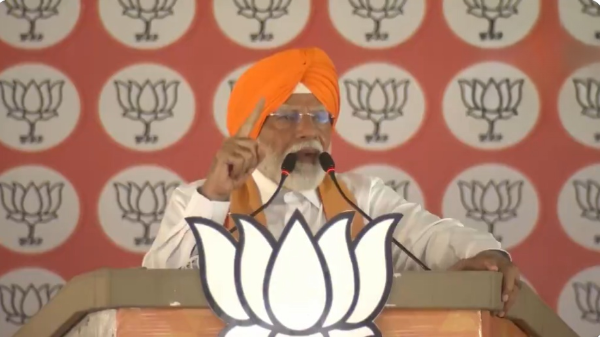Prime Minister Narendra Modi’s recent remarks at a public rally in Patiala, Punjab, have ignited a fresh wave of political tension, with critics accusing him of rewriting history to score political points. Modi’s assertion that the Congress party was responsible for the partition legacy, which allegedly hindered access to Kartarpur Sahib for decades, has drawn sharp rebukes from opposition leaders and historians alike.
Addressing the rally, Modi claimed, “Congress did the partition of the country in such a way that for 70 years, we had to look at Kartarpur Sahib through binoculars.” He further stirred controversy by suggesting that if he had been in power during the Bangladesh Liberation War, he would have seized control of Kartarpur Sahib from Pakistan.
Opposition leaders, particularly from the Congress party, swiftly condemned Modi’s remarks, labeling them as historically inaccurate and politically motivated. They accused the Prime Minister of attempting to rewrite the narrative of partition and deflect attention from his government’s failures. Congress spokespersons emphasized that partition was a tragic consequence of colonial policies and communal tensions, and it is irresponsible to attribute its complexities to any single political party.
Historians echoed these sentiments, cautioning against oversimplifying the historical context of partition and its aftermath. They stressed that the partition of India was a multifaceted event shaped by colonial policies, nationalist movements, communal tensions, and international factors. Modi’s attempt to frame it solely as the fault of the Congress party, they argued, undermines the nuanced understanding of history and perpetuates divisive narratives for political gain.
While Modi’s supporters defended his remarks as a critique of Congress’ historical legacy, they acknowledged that his rhetoric could fuel polarization and hinder efforts to foster reconciliation and understanding. They urged the Prime Minister to focus on policies that promote unity and development rather than resorting to divisive rhetoric.
The Kartarpur Sahib corridor, inaugurated in 2019, was hailed as a significant step towards fostering religious harmony and facilitating pilgrimage for Sikh devotees. However, Modi’s remarks have overshadowed the corridor’s positive impact, sparking debates on the intersection of history, politics, and religion.
As political tensions escalate, the controversy surrounding Modi’s remarks underscores the challenges of reconciling divergent historical narratives and promoting inclusive nation-building efforts. While the Kartarpur Sahib corridor remains open for devotees, the fallout from Modi’s comments serves as a reminder of the enduring legacies of partition and the complexities of addressing historical grievances in contemporary politics.



